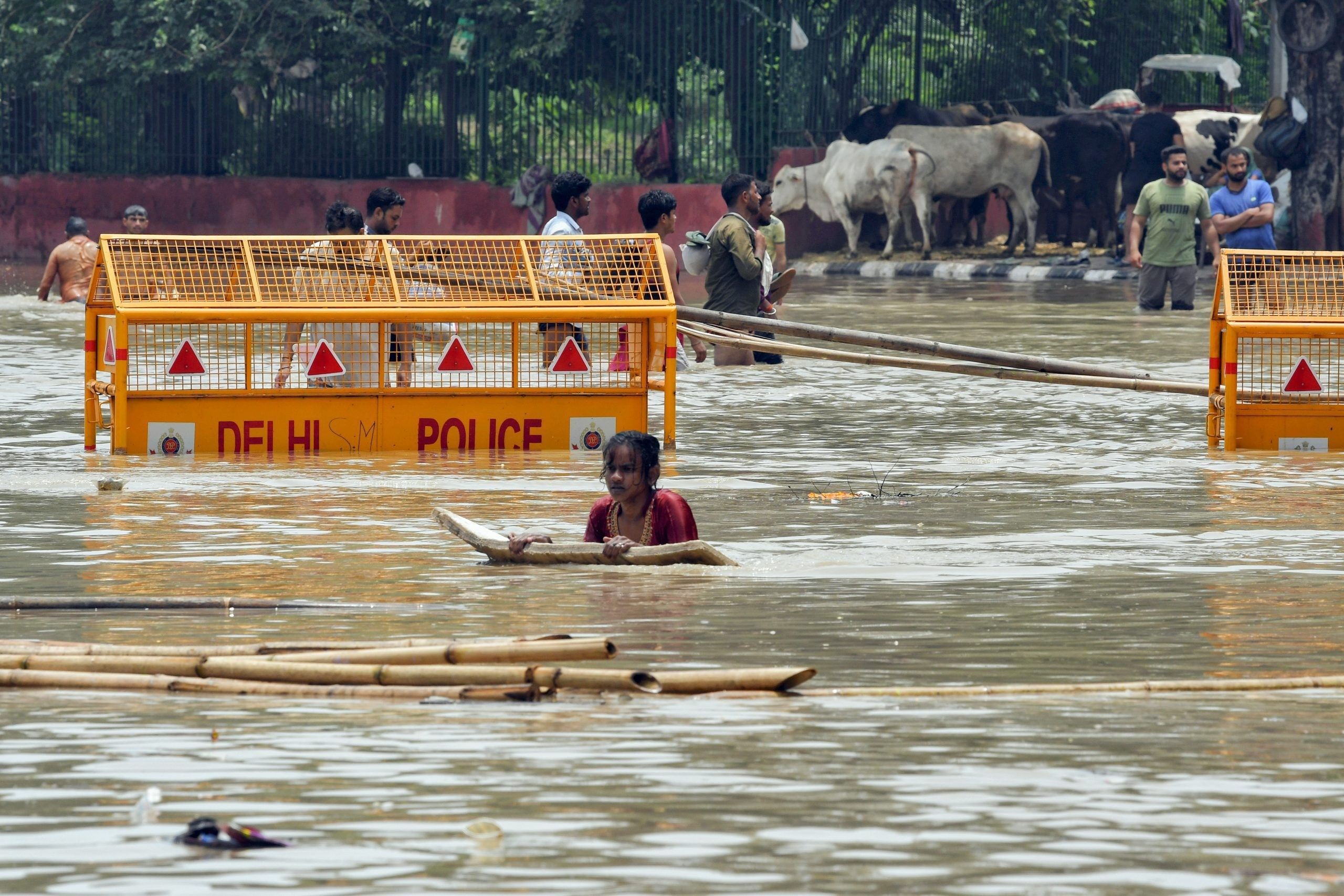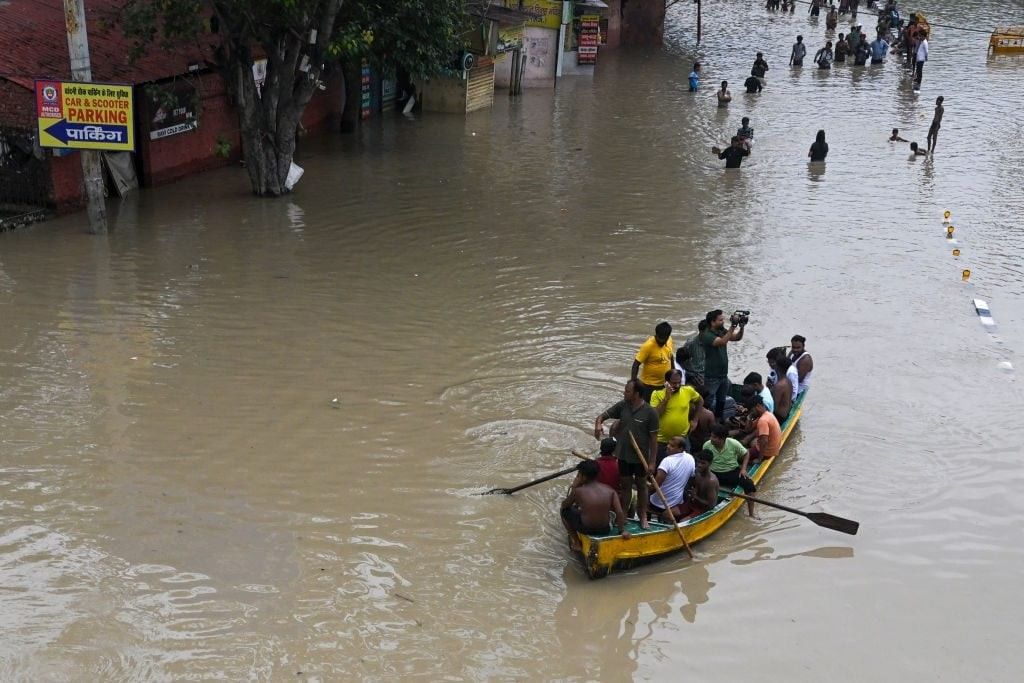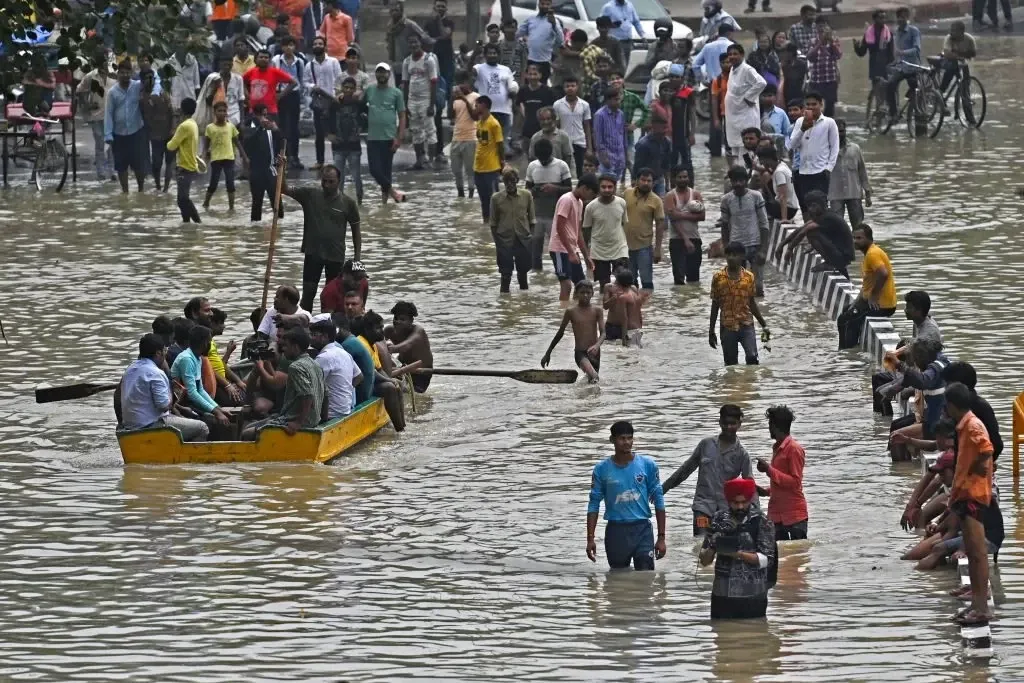THE RIVER running through India’s capital New Delhi has reached a record high due to monsoon floods, authorities said on Friday (14) as army engineers were deployed to try to contain the waters.
The Yamuna river was flowing in an “#EXTREME FLOOD SITUATION”, India’s central water commission tweeted, having reached a record width of 208.66 metres late on Thursday (13).
The figure surpassed the previous mark of 207.49 metres, reached in 1978, and the flows threatened low-lying neighbourhoods in the megacity of more than 20 million people.

Flooding and landslides are common and cause widespread devastation during India’s treacherous monsoon season, but experts say climate change is increasing their frequency and severity.
Authorities deployed army engineers around a barrage and thousands of people have moved to temporary relief camps or nearby elevated roads as areas close to the riverbank were inundated over the past 48 hours.

All schools, colleges, and non-essential government offices have been ordered to remain shut till at least Sunday (16) as several key roads and bridges are also under water.
Delhi’s chief minister Arvind Kejriwal said that state personnel and army engineers were working to “try to ensure that the flood waters do not enter the [main areas of the] city”, but warned that more rain was forecast for Saturday (15).
Conditions in Delhi may depend on the situation in several upstream northern states which have received heavy to very heavy rains in the last few days.

At least 90 people have lost their lives in Punjab, Himachal Pradesh, Uttarakhand, and Haryana in recent days, according to local media reports.
Tens of thousands of people have been stranded, with key roads, power lines and communication networks disrupted in the regions because of rain-triggered landslides and floods.

The monsoon brings South Asia around 80 per cent of its annual rainfall, which is key to both agriculture and the livelihoods of millions, but brings with it natural disasters every year.
(AFP)
